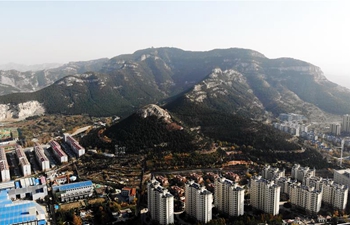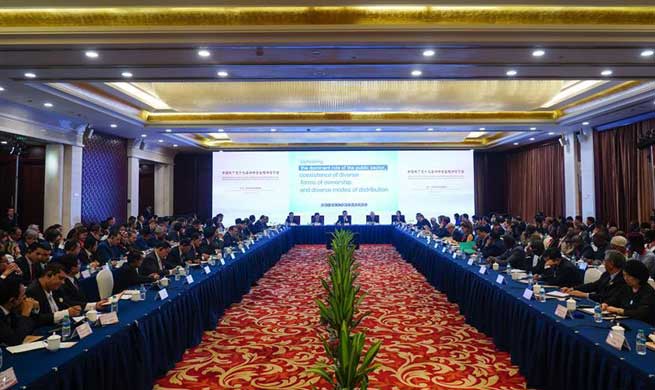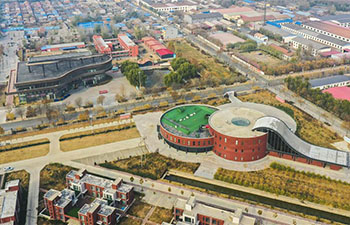JERUSALEM, Nov. 20 (Xinhua) -- Benny Gantz, Israeli Prime Minister Benjamin Netanyahu's challenger, said Wednesday that he has failed to form a government by the midnight deadline as the country's conflicts with Iran and Syria deepen.
Gantz said he has informed President Reuven Rivlin of his decision and returned the mandate to form a government that the president had given him last month, increasing the prospects for the third elections in Israel in less than a year.
In public remarks, Gantz, leader of the centrist party of Blue and White and Israel's former military chief, accused Netanyahu of refusing a unity government.
He said Netanyahu had refused to drop the demand for parliamentary immunity from a series of corruption investigations in which he is a main suspect.
"This is a dangerous and unprecedented attempt in the history of Israel to prevent the people of Israel from having the government they have voted for," Gantz said, referring to the Sept. 17 elections, in which his party won the largest number of the votes.
He blamed Netanyahu for "entrenching himself in an interim government for over a year" to avoid indictment.
The race could be shaken up by the expected indictment of Netanyahu due to corruption charges.
Attorney General Avichai Mandelblit is set to file fraud and breach of trust charges and an announcement could come as soon as Thursday although there was no immediate confirmation from the Justice Ministry.
Netanyahu, who has denies all wrongdoings, accused his opponents of a witch-hunt. With the exception of prime minister, Israeli law requires public officials to resign if they are charged with a crime.
Netanyahu was tasked by the president with forming a new governing coalition ahead of Gantz because he was supported by a larger right-wing bloc. But, like Gantz, he failed to gain a 61-seat majority needed to form a coalition in Israel's 120-seat parliament.
Israel's political system has been paralyzed since the closely-fought election on Sept. 17, in which no party won enough votes to form a majority coalition in the 120-seat parliament.
The elections were the second time Israelis cast their votes in five months. Netanyahu failed to form a coalition government following the April election, which led to the second elections in September.
Amid the political deadlock, Israel has launched a wide-scale offensive against Iranian targets in Syria on Wednesday in response to missiles fired into Israel the day before.
The rockets fired into Israel's north were by "an Iranian force," a statement released by the Israeli Defense Forces (IDF) said, adding the retaliation "struck dozens of military targets of the Iranian Quds Force and the Syrian Armed Forces."
Syrian media reported over 10 deaths in the airstrikes and additional damage.
Tensions on Israel's northern border with Syria have been running high in the last year with several incidents between forces of the two countries.
The timing of the current clash came a week after a major escalation between Israel and the Palestinian Islamic Jihad (PIJ) in the Gaza Strip on Israel's southern border.

















